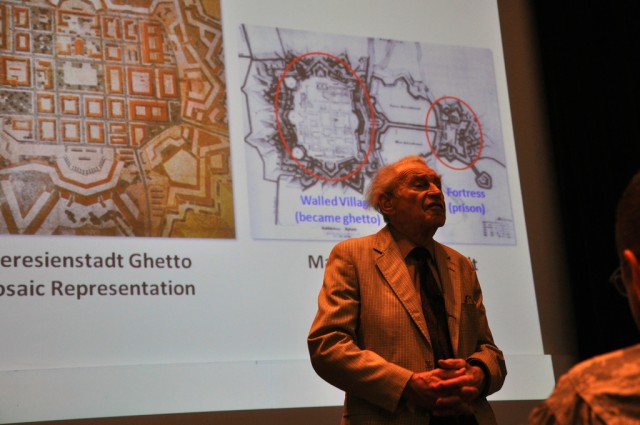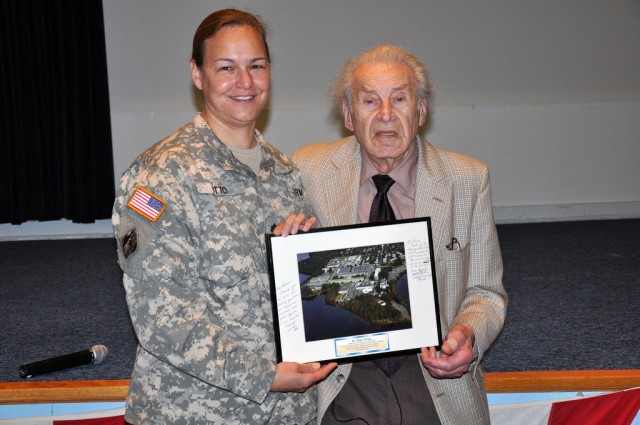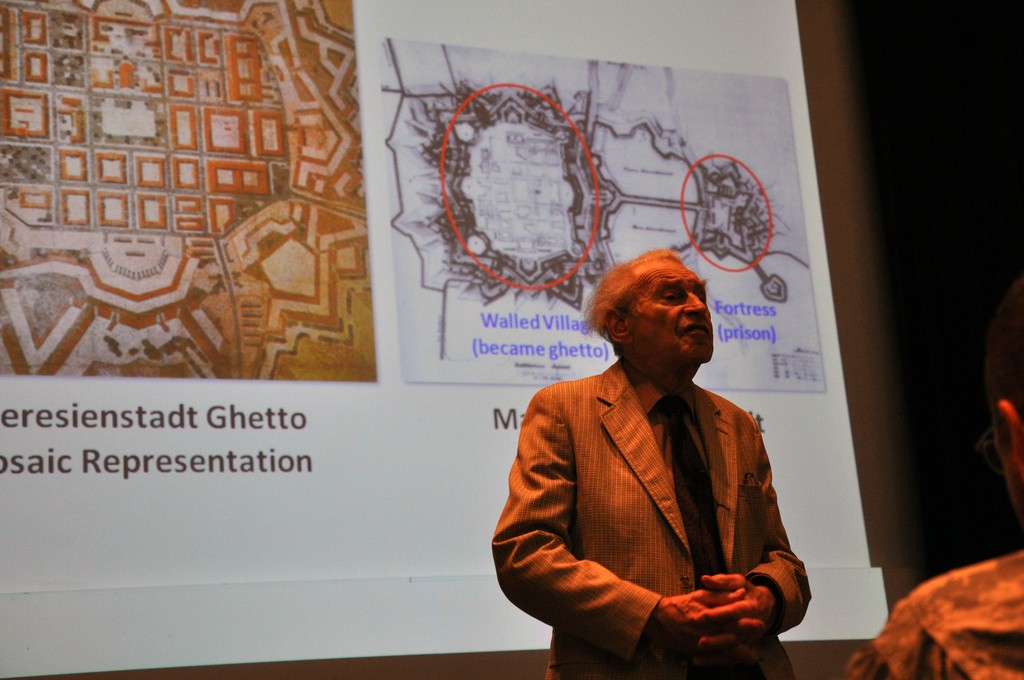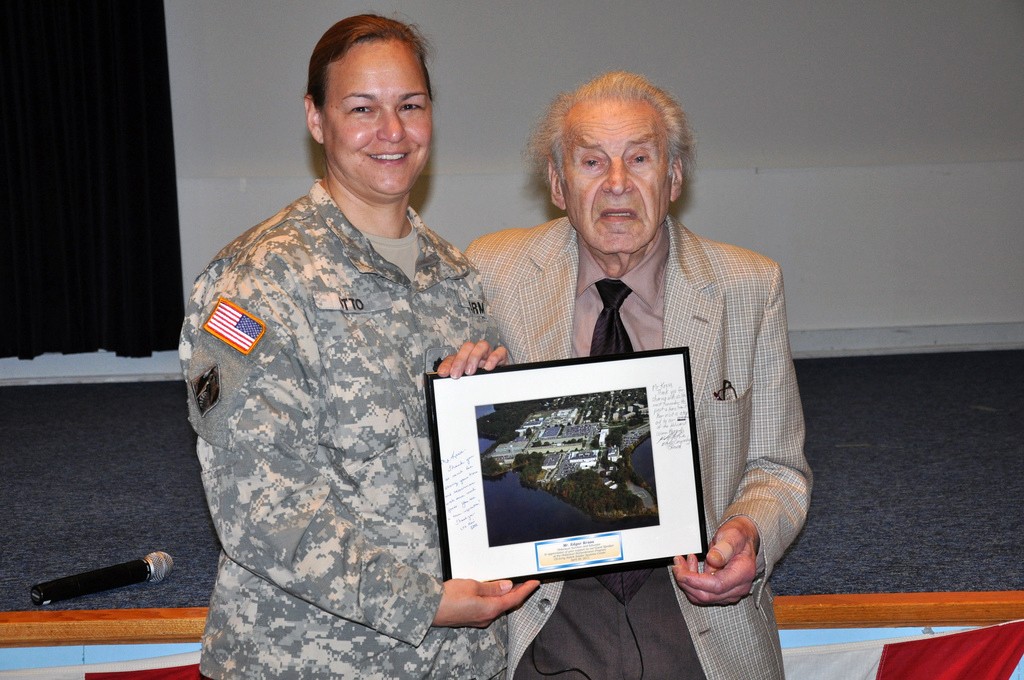Edgar Krasa rolled up his left sleeve to reveal a number tattooed on the inside of his left forearm. It marked him as a Holocaust survivor.
More than six decades after the tattoo was placed there by the Nazis, Krasa showed it April 28 to those assembled for a Holocaust Remembrance at Natick Soldier Systems Center.
Krasa received the tattoo at the infamous Auschwitz concentration camp in Poland, where he and other Jews had been shipped by the Nazis. Prior to that, Krasa had been at imprisoned at Terezin Ghetto in his native Czechoslovakia.
"They made us immediately feel like prisoners," recalled Krasa, who arrived at Terezin among 342 Jews in November 1941.
Early in his presentation, Krasa held up a yellow Star of David, which the Nazis made Jews wear on their clothing to readily identify them.
"This is an original one," said Krasa, "from my wife's dress."
While relating details of the inhumanities that he and other Jewish prisoners endured, Krasa still managed to flash a sense of humor that doubtless contributed to his survival during those darkest days of World War II.
Music also helped. Krasa sang bass in a Terezin chorus to defy the Nazis, who allowed the arts to flourish in the ghetto to present a facade for a 1944 visit by the International Red Cross.
"Everything was deception," Krasa said.
In September 1944, the Jews were moved from Terezin to Auschwitz in railroad freight cars, 70 people jammed into each car.
"We were in those wagons for three days," said Krasa, "without food, without drink."
Krasa recalled pulling into the train station and seeing a sign that read "Auschwitz."
"It didn't mean a thing to me," said Krasa, "because nobody came back to tell us what it was."
He found out immediately, when the Jews were split into two groups - the able-bodied and everyone else.
"The wrong-side people were gassed the same day," Krasa said.
He also noticed black smoke and asked a guard about it. He told Krasa that the bakery must have burned a lot of bread. Krasa later found out the smoke was billowing from crematoria "with a capacity of 10,000 cremations a day."
On January 19, 1945, the Nazis sent Krasa and other prisoners out of the camp on what has become known as the "Death March."
"We marched three days without food or drink," said Krasa, "just a little dirty snow."
On the third night, in a weakened state, he lay down in a ditch, where he was shot by a guard. The bullet lodged in his rib cage. Luckily, a French doctor, also a prisoner, managed to remove the bullet with a pocket knife and save Krasa's life.
Soon after that ordeal, Krasa was liberated by the Russian Army and has gone on to lead a rich, full life. He concluded his career as part-owner of a restaurant in Brookline, Mass., retiring in 1991.
"We are very fortunate to have a first-hand recollection of a time not so long ago that still seems unfathomable," said Susie Davidson, an author, journalist and filmmaker, who introduced Krasa at Natick. "Edgar has dedicated his life to Holocaust education.
"These courageous people show us that we must never give up and never stop contributing, no matter what happens to us in our lives."




Social Sharing